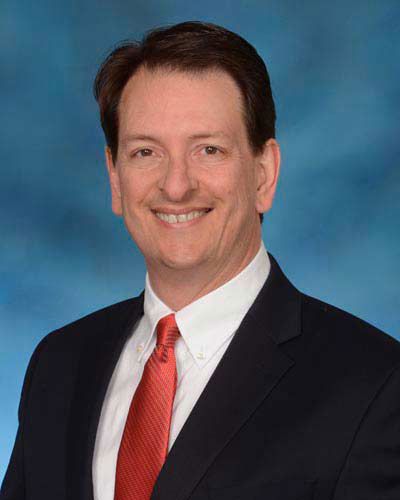
Peter Crino, MD, PhD
University of Maryland Medical Center
Dr. Richard and Kathryn Taylor Endowed Professor of Neurology; Chair, Department of Neurology at the University of Maryland Medical Center and the University of Maryland School of Medicine
Expertise:
EpilepsyEpilepsyNeurologyNeurologyTuberous SclerosisTuberous SclerosisTuberous sclerosis complexTuberous sclerosis complex
Dr. Crino is an internationally recognized physician-scientist specializing in developmental brain disorders. His laboratory has researched mechanisms of altered brain development associated with autism, intellectual disability, and epilepsy, defining developmental disorders associated with intractable epilepsy including autism, hemimegalencephaly, focal cortical dysplasia, and tuberous sclerosis complex (TSC), which he has studied extensively. He has collaborated on identifying several new genes associated with neurodevelopmental disorders, pioneered single cell mRNA and DNA sequencing analysis in resected human tissues; and has used mouse models to plumb the effects of mTOR regulatory genes on cell development in in vitro models using immunocytochemistry, Western assay, mRNA expression analysis, gene transfection, and in vitro cell migration assays. Before his appointment to Chairman of the UMSOM Department of Neurology, Dr. Crino was professor and vice chair for research at Temple University School of Medicine’s Shriners Hospital Pediatric Research Center in Philadelphia. Over the last 20 years, his lab has had continuous funding from the National Institutes of Health, through which he has four grants totaling $4.1 million. He has coauthored 151 peer-reviewed manuscripts, chapters, and reviews. He has been invited to lecture all over the world.
No Research/Citations
University of Maryland Medicine Announces Comprehensive Stroke Center at UMMC Receives Top Honors for Stroke Care
.UMMC Stroke Care Center earns Gold Plus designation and other honors from American Heart Association rapid response and high adherence to stroke care guidelines.
04-Oct-2021 12:25:28 PM EDT
No Quotes
Available for logged-in users onlyLogin HereorRegister